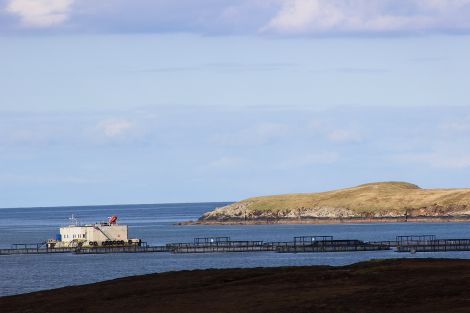News / Crown estate pilot launched
A PILOT scheme which could lead to local authorities and community bodies gaining control over the seabed and coastline has been launched.
Crown Estate Scotland said the scheme aims to “develop project proposals designed to improve the economic, social and environmental well-being of their local area”.
Shetland MSP Tavish Scott, however, said that a firm plan on the devolution of seabed management to the islands needs to be introduced rather than a pilot.
It follows the news that the Scottish Crown Estate Bill has been approved in principle by the Scottish Parliament, with the legislation due to establish a framework for the changes in the management of estate assets.
Scottish Crown Estate assets include seabed out to 12 nautical miles, just under half of the country’s foreshore and around 37,000 ha of rural land across four estates.
These are home to moorings, pontoons, fish farms, agricultural farms and more, while it covers agreements with cables and pipeline operators in addition to rights to offshore renewable energy and gas and carbon dioxide storage out to 200 nautical miles.
Control over the seabed is expected to create a substantial new income stream for Shetland.
Environment, climate change and land reform secretary Roseanna Cunningham said: “This pilot scheme paves the way for local authorities and local communities to actively manage land, coastline or seabed in a way that directly benefits communities, but also Scotland as a whole by, for example, promoting sustainable development.
“Crown Estate Scotland has a wealth of expertise to share with local authorities and communities, and I look forward to seeing organisations develop and shape their proposed projects. Small changes at a local level can have a big impact on a community – this scheme creates some really exciting opportunities.”
Scott, however, pointed to the Smith Commission agreeing after the Scottish independence vote in 2014 that management of the seabed should be devolved to the islands.
Become a member of Shetland News
“We don’t need pilots. We need a plan to give effect to that cross party agreement, and the sooner the better,” he said.
Successful applicants to the scheme who go on to develop their project may receive appropriate remuneration which will cover their expenses, and can – with agreement from Crown Estate Scotland – reinvest capital raised within the project.
The balance of the revenue will be paid to Crown Estate Scotland which will be given in turn to the Scottish Government to contribute to public spending.
The stage one application process, meanwhile, is open until 16 August.
Crown Estate Scotland encourages any interested groups to get in touch and discuss details of their plans. Once applications are in, they will be assessed for eligibility.
Projects deemed viable will then progress to stage two application when applicants will develop and submit their business plans to meet the criteria. Again, an assessment phase will follow. Scottish ministers will approve the final selected projects.
Crown Estate Scotland manages land and property on behalf of Scottish ministers and says it “works with people, businesses and organisations to ensure that the assets are managed in a sustainable way that creates prosperity for the Scotland and its communities”.
Become a member of Shetland News
Shetland News is asking its readers to consider paying for membership to get additional perks:
- Removal of third-party ads;
- Bookmark posts to read later;
- Exclusive curated weekly newsletter;
- Hide membership messages;
- Comments open for discussion.
If you appreciate what we do and feel strongly about impartial local journalism, then please become a member of Shetland News by either making a single payment, or setting up a monthly, quarterly or yearly subscription.























































